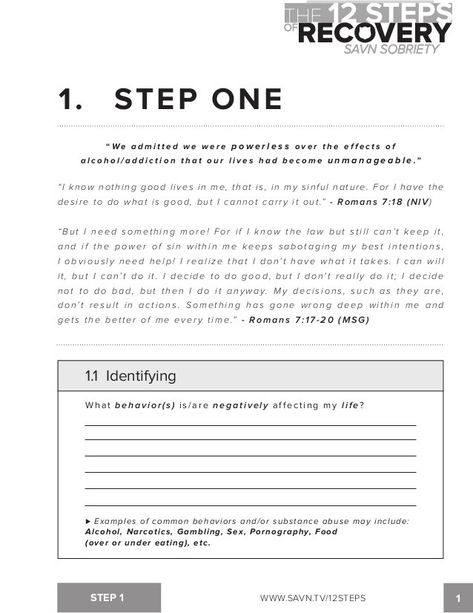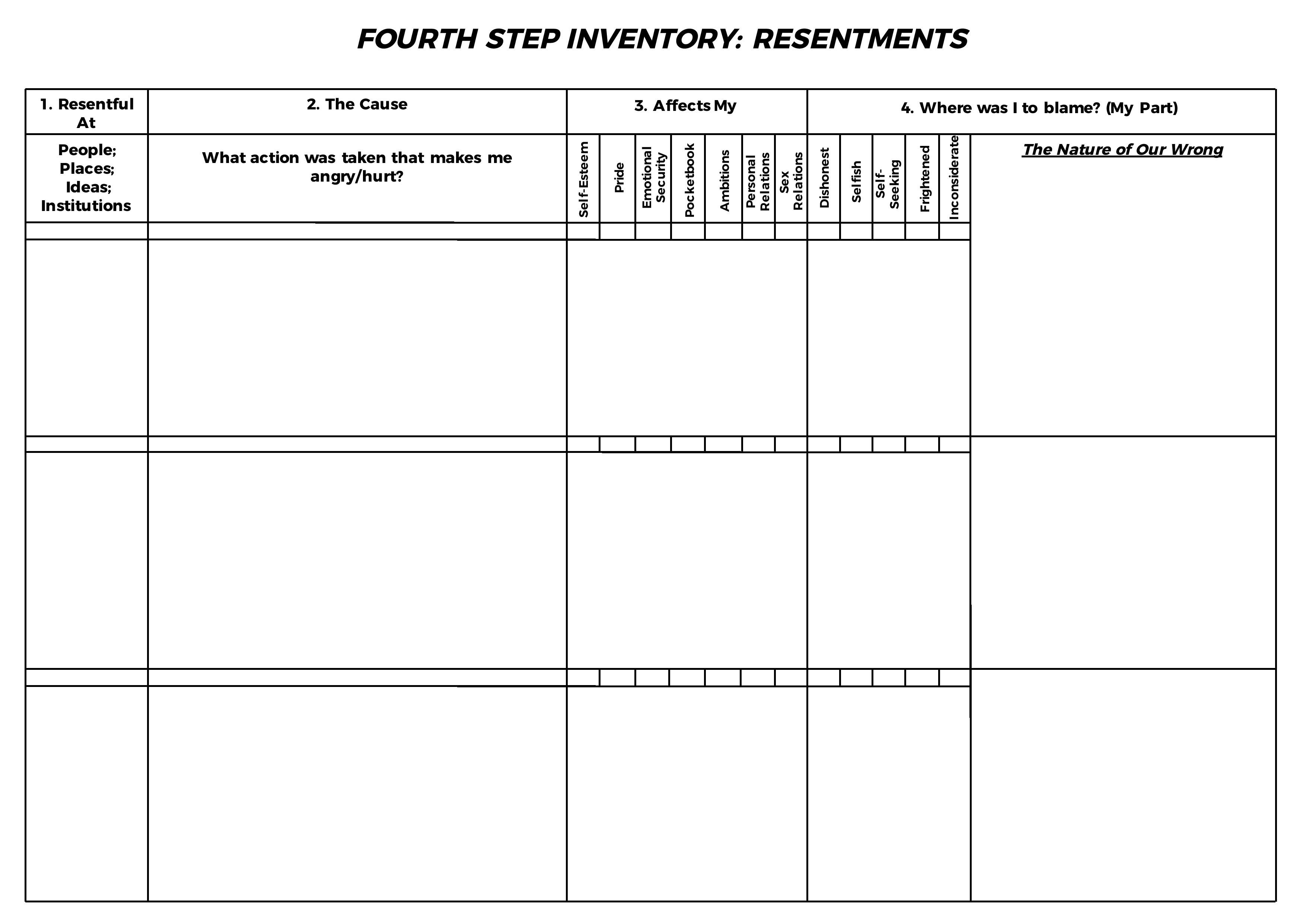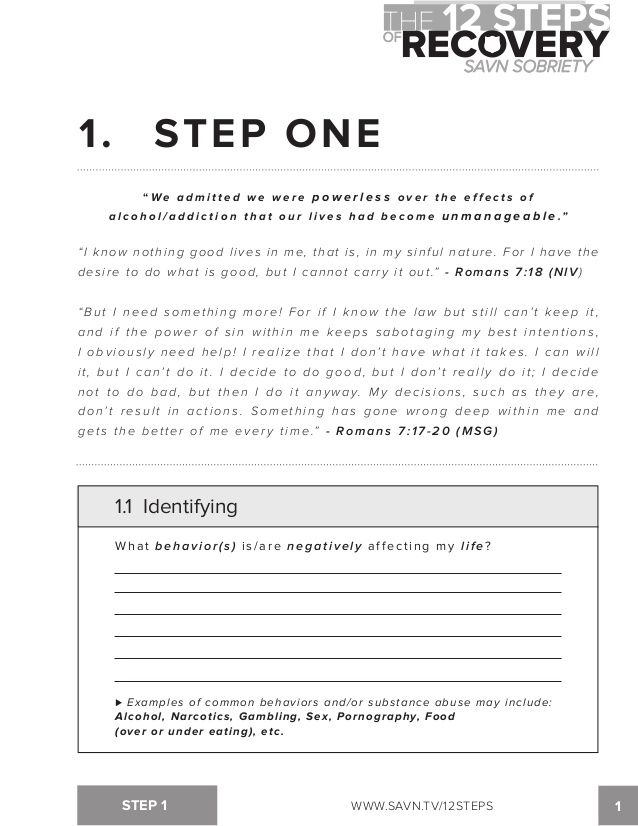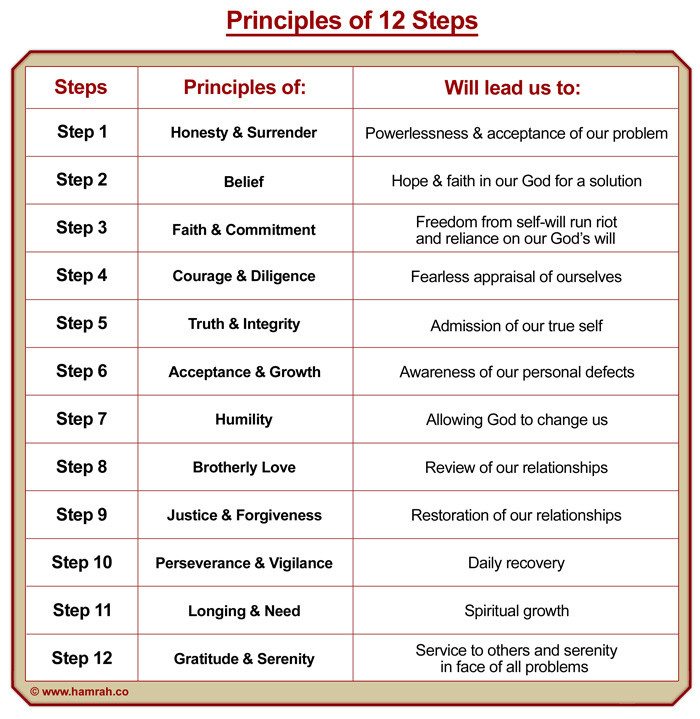12 Steps of AA: Free Printable Worksheets

In the journey of overcoming alcohol addiction, the Twelve Steps of Alcoholics Anonymous (AA) are fundamental guidelines designed to assist individuals in achieving sobriety and personal growth. This guide provides detailed printable worksheets that align with each of these steps, offering practical exercises and reflective questions to aid in recovery. Here are the twelve steps and how you can utilize our printable worksheets to enhance your recovery process:
Step 1: We admitted we were powerless over alcohol - that our lives had become unmanageable.

- Acknowledge your personal struggle with alcohol.
- Write a list of times when alcohol negatively impacted your life.
- Reflect on how your life became unmanageable due to drinking.
🔍 Note: Honesty is crucial when completing this step. Reflect deeply to understand your powerlessness.
Step 2: Came to believe that a Power greater than ourselves could restore us to sanity.

- Explore different spiritual concepts and identify one that resonates with you.
- Write a letter to this Power or Higher Power explaining your need for help.
🌟 Note: This step is not about religion but finding faith in something greater to aid recovery.
Step 3: Made a decision to turn our will and our lives over to the care of God as we understood Him.

- Create a ‘Turning Over’ statement where you commit your will to a Higher Power.
- List daily decisions where you will surrender control.
Step 4: Made a searching and fearless moral inventory of ourselves.

| Resentment | Fears | Harm Done to Others | Personal Shortcomings |
|---|---|---|---|
| Identify who or what you resent | List your fears | Recall times you’ve harmed others | Acknowledge your character flaws |

🔍 Note: This step requires you to be brutally honest with yourself.
Step 5: Admitted to God, to ourselves, and to another human being the exact nature of our wrongs.

- Choose a person to share your inventory with.
- Prepare how you will communicate your wrongs.
Step 6: Were entirely ready to have God remove all these defects of character.

- Reflect on why you want these defects removed.
- List affirmations to support your readiness.
Step 7: Humbly asked Him to remove our shortcomings.

- Write a prayer or ask a friend to help you with this step.
Step 8: Made a list of all persons we had harmed and became willing to make amends to them all.

- Create a comprehensive list of people you’ve harmed.
Step 9: Made direct amends to such people wherever possible, except when to do so would injure them or others.

- Plan your amends with empathy and awareness of potential harm.
Step 10: Continued to take personal inventory and when we were wrong promptly admitted it.

- Establish a routine for daily reflection.
Step 11: Sought through prayer and meditation to improve our conscious contact with God as we understood Him, praying only for knowledge of His will for us and the power to carry that out.
- Develop a spiritual practice that feels personal and meaningful.
Step 12: Having had a spiritual awakening as the result of these steps, we tried to carry this message to alcoholics and to practice these principles in all our affairs.
- Reflect on how the steps have changed your life.
- Commit to helping others in recovery.
In reflecting on the Twelve Steps of AA through these printable worksheets, we come to see how each step builds upon the other, creating a path of personal accountability, spiritual growth, and community support. Each worksheet not only guides you through the introspective process but also encourages ongoing self-improvement and connection with a supportive community. These steps are not merely about achieving sobriety; they are about finding a new way of living that fosters peace, honesty, and fellowship.
How do I know if I need the AA program?

+
If your drinking is affecting your health, relationships, or job, you might benefit from the support of AA.
Can I work through the steps without attending AA meetings?

+
While AA meetings offer community support, many find it possible to apply the steps independently or with a sponsor or therapist.
What should I do if I relapse during the Twelve Steps?

+
Relapse can be part of the journey. Use it as a learning experience, re-evaluate your approach, and consider discussing it with your support group or sponsor.



